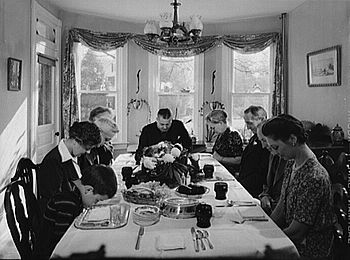In the Bible, particularly the Old Testament, many names are used to refer to God. This list is short and only speaks to names I have studied and used. There are 72 names cited by some scholars and even that is conservative. Sometimes there is a story that goes with the name and may indicate why it is used.
1. Elohim is translated as God and is the first name of Diety. In Hebrew it is plural in form, but singular in meaning. This implies the Trinity.(Genesis 1:1)
2. Jehovah--YHWH--God--I AM--The Self Existent One. (Exodus 3:14)(pronounced Yaw-way)
3. Adonai--means Lord--Without capitalization, adon or adonai means master. Adonai with the capitals letters means Master and is usually translated Lord. (pronounced ah-do-NI)
4. Adonai Jehovah--Lord God--This title incorporates elements of both words, but focuses more on the Adonai. 5. Shaddai generally means the strengthener and satisfier. (Genesis 17:1)
6. El means God and is used in other words to mean represent God-Daniel means God is my judge; Gabriel means strength of God;Israel means wrestles with God.
7. El Elyon is translated Most High or Most High God. (Genesis 14:18-19)
8. El Olam means the Everlasting God--(Genesis 21:33) The Hebrew word means hid or hidden and refers to time. It emphasizes the eternal duration of the Being of God. It also presents the hidden or mysterious elements of his nature. He is everlasting and He is the God of everlasting things.
The next collection of Names of God emphasize his sovereignty in special circumstances and may be a comfort to us when we have a need of an extreme nature.
1. Elohim is translated as God and is the first name of Diety. In Hebrew it is plural in form, but singular in meaning. This implies the Trinity.(Genesis 1:1)
2. Jehovah--YHWH--God--I AM--The Self Existent One. (Exodus 3:14)(pronounced Yaw-way)
3. Adonai--means Lord--Without capitalization, adon or adonai means master. Adonai with the capitals letters means Master and is usually translated Lord. (pronounced ah-do-NI)
4. Adonai Jehovah--Lord God--This title incorporates elements of both words, but focuses more on the Adonai. 5. Shaddai generally means the strengthener and satisfier. (Genesis 17:1)
6. El means God and is used in other words to mean represent God-Daniel means God is my judge; Gabriel means strength of God;Israel means wrestles with God.
7. El Elyon is translated Most High or Most High God. (Genesis 14:18-19)
8. El Olam means the Everlasting God--(Genesis 21:33) The Hebrew word means hid or hidden and refers to time. It emphasizes the eternal duration of the Being of God. It also presents the hidden or mysterious elements of his nature. He is everlasting and He is the God of everlasting things.
The next collection of Names of God emphasize his sovereignty in special circumstances and may be a comfort to us when we have a need of an extreme nature.
- Jehovah Elohim--God is creator and moral authority over man.
- Jehovah Jireh--The Lord will provide.(Genesis 22:8)
- Jehovah Nissi--The Lord my banner.
- Jehovah Rapha--The Lord who heals
- Jehovh Sabaoth--This title refers to God's Supreme command of warriors, the hosts of Heaven.
- Jehovah Shalom--God our peace
- Jehovah Shammah--The Lord is present
- Jehovah Tsidkenu--The Lord our righteusness
- Lord of hosts-Commander of the warriors or soldiers of Heaven.









